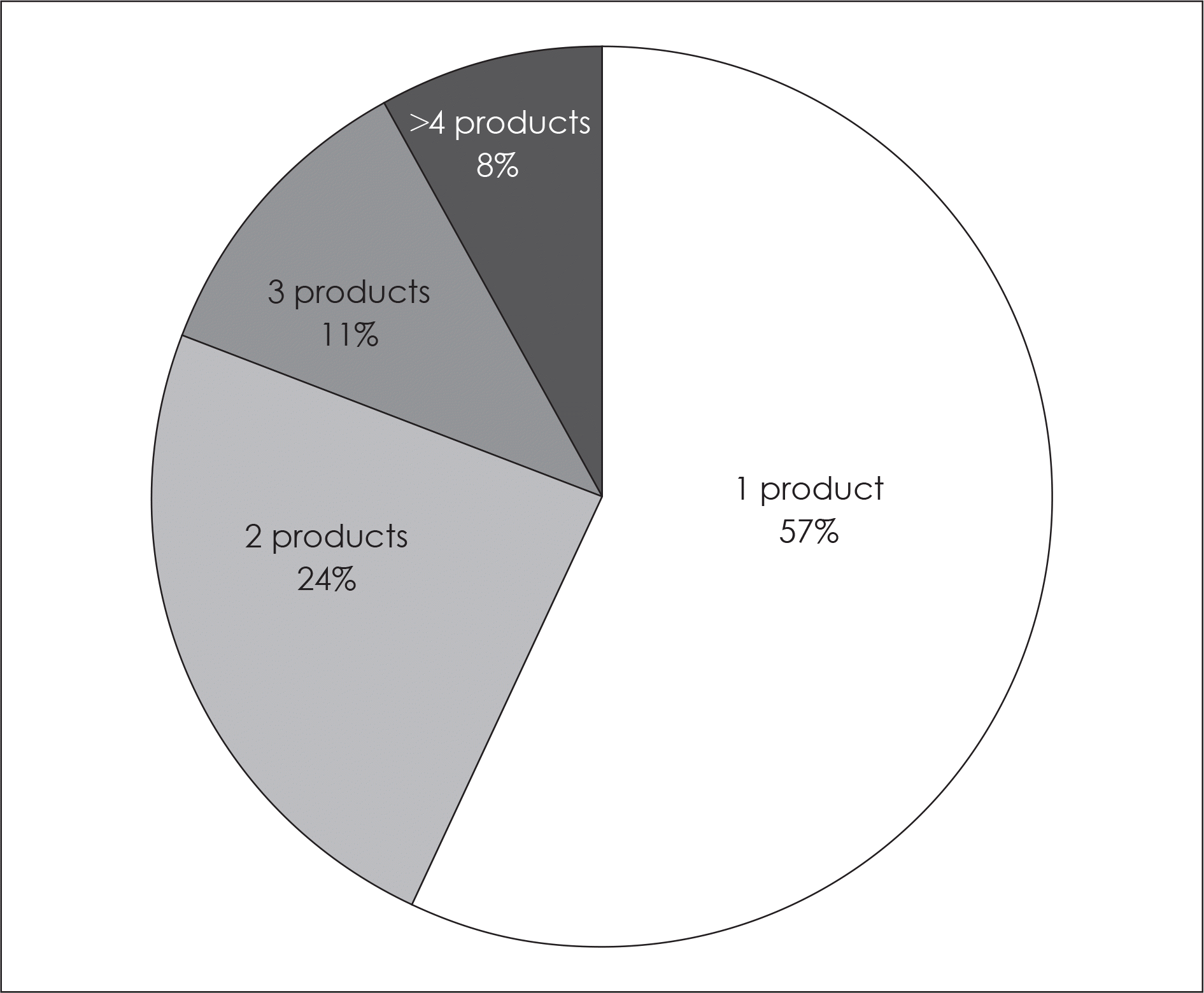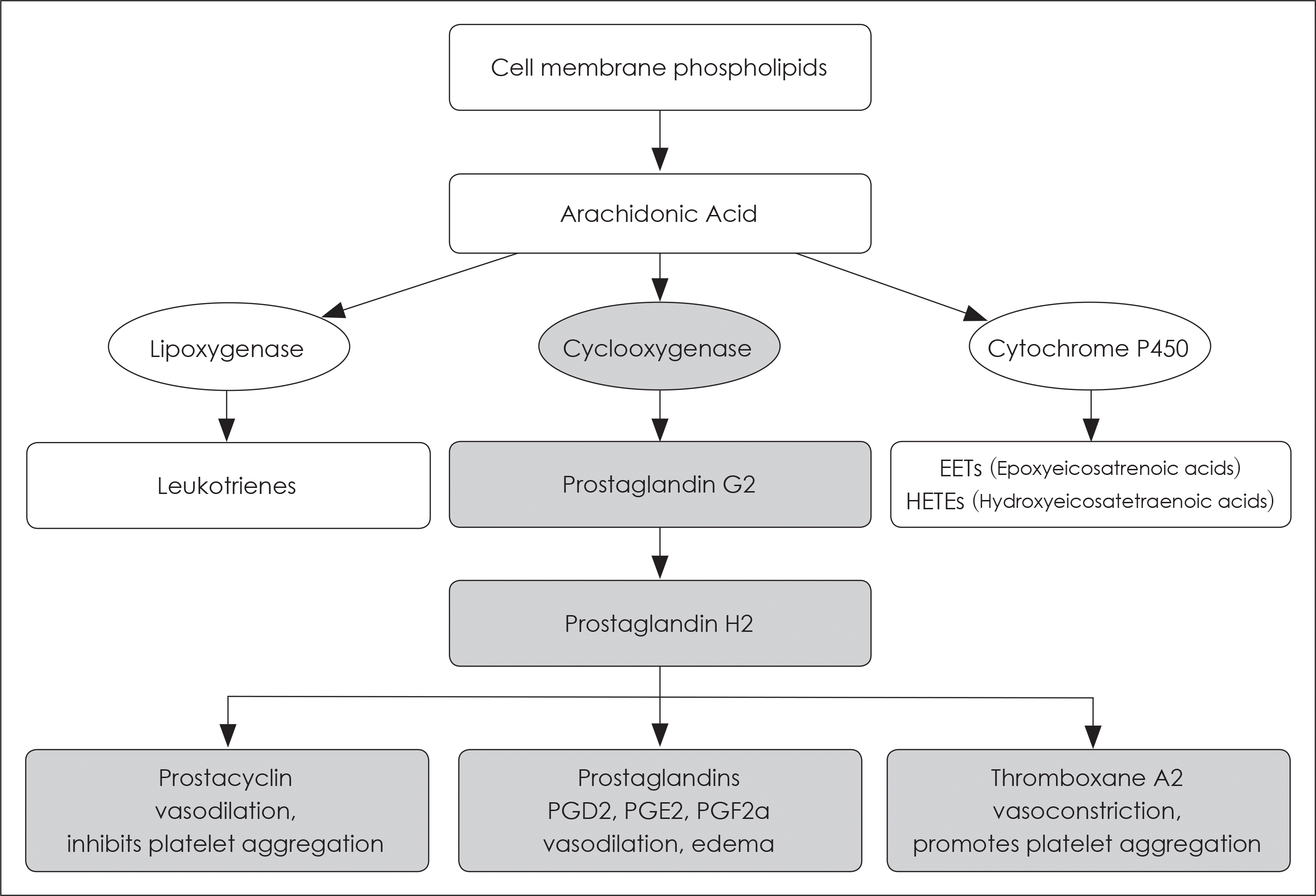Abstract
There is a wide variety of dietary supplements on the market that are taken by patients of all walks of life. Unfortunately their use is self-prescribed and patients rarely view them as medication reveal their use to hospital staff. Garlic has been reported to inhibit platelet aggregation and may interact with anticoagulants and antiplatelet agents. Other alternative supplements have also been associated with potential increased bleeding, including ginkgo biloba, ginger, ginseng, and omega-3 fatty acid. It is essential for surgeons to be apprised of all substances ingested by patients, so they can identify potential adverse effects and drug interactions.
Go to : 
References
1). King AR, Russett FS, Generali JA, Grauer DW. Evaluation and implications of natural product use in preoperative patients: a retrospective review. BMC Complement Altern Med. 2009; 9:38.

2). Chang LK, Whitaker DC. The impact of herbal medicines on dermatologic surgery. Dermatol Surg. 2001; 27:759–63.

3). Tattelman E. Health effects of garlic. Am Fam Physician. 2005; 72:103–6.
4). Fukao H, Yoshida H, Tazawa YI, Hada T. Antithrombotic Effects of Odorless Garlic Powder Both in Vitroand in Vivo. Bioscience, Biotechnology and Biochemistry. 2014; 71(1):84–90.
5). Fakhar H, Tayer AH. Effect of the Garlic Pill in comparison with Plavix on Platelet Aggregation and Bleeding Time. Iran J Ped Hematol Oncol. 2011; 2:146–52.
6). Hiyasat B, Sabha D, Grotzinger K, Kempfert J, Rauwald JW, Mohr FW, et al. Antiplatelet activity of Allium ursinum and Allium sativum. Pharmacology. 2008; 83:197–204.
7). Hodges PJ, Kam PCA. The perioperative implications of herbal medicines. Anaesthesia. 2002; 57:889–99.

8). Rose KD, Croissant PD, Parliament CF, Levin MB. Spontaneous spinal epidural hematoma with associated platelet dysfunction from excessive garlic ingestion: a case report. Neurosurgery. 1990; 26:880–2.

10). Erian M, McLaren . Be wary of “natural” therapy in gynecological surgery. Int J Womens Health. 2013; 20:345–9.
11). Spolarich AE, Andrews L. An examination of the bleeding complications associated with herbal supplements, antiplatelet and anticoagulant medications. J Dent Hyg. 2007; 81:67–7.
12). Scharbert G, Kalb ML, Duris M, Marschalek C, Kozek-Lange-necker SA. Garlic at Dietary Doses Does Not Impair Platelet Function. Anesthesia & Analgesia. 2007; 105:1214–8.

13). Oken BS, Storzbach DM, Kaye JA. The Efficacy of Ginkgo biloba on Cognitive Function in Alzheimer Disease. Arch Neurol. 1998; 55:1409–15.

14). Bone KM. Potential interaction of Ginkgo bilobaleaf with antiplatelet or anticoagulant drugs: What is the evidence-Cott JM, Eisenbrand G, eds. Mol Nutr Food Res. 2008; 52:764–71.
15). Bent S, Goldberg H, Padula A, Avins AL. Spontaneous bleeding associated with ginkgo biloba: a case report and systematic review of the literature: a case report and systematic review of the literature. J Gen Intern Med. 2005; 20:657–61.
16). Rowin J, Lewis SL. Spontaneous bilateral subdural hematomas associated with chronic Ginkgo biloba ingestion. Neurology. 1996; 46:1775–6.

18). Matthews MK. Association of Ginkgo biloba with intracerebral hemorrhage. Neurology. 1998; 50:1933–4.

19). Rosenblatt M, Mindel J. Spontaneous Hyphema Associated with Ingestion of Ginkgo bilobaExtract. N Engl J Med. 1997; 336:1108–8.
20). Heller J, Gabbay JS, Ghadjar K, Jourabchi M, O'Hara C, Heller M. et al. Top-10 List of Herbal and Supplemental Medicines Used by Cosmetic Patients: What the Plastic Surgeon Needs to Know. Plast Reconstr Surg. 2006; 117(2):436–45.
21). Kang SW, Min HY. Ginseng, the “Immunity Boost”: The Effects of Panax ginseng on Immune System. Journal of Ginseng Research. 2012; 36:354–68.

22). Mucalo I, Jovanovski E, Rahelić D, Božikov V, Romić Z, Vuksan V. Effect of American ginseng (Panax quinquefolius L.) on arterial stiffness in subjects with type-2 diabetes and concomitant hypertension. J Ethnopharmacol. 2013; 150:148–53.

23). Attele AS, Wu JA, Yuan CS. Ginseng pharmacology: multiple constituents and multiple actions. Biochem Pharmacol. 1999; 58:1685–93.
24). Vuksan V, Sievenpiper JL, Koo VY, Francis T, Zdravkovic UB, Xu Z, et al. American ginseng (Panax quinquefolius L) reduces postprandial glycemia in nondiabetic subjects and subjects with type 2 diabetes mellitus. Arch Intern Med. 2000; 160:1009–13.

25). Kuo SC, Teng CM, Lee JC, Ko FN, Chen SC, Wu TS. Antiplatelet components in Panax ginseng. Planta Med. 1990; 56:164–7.
26). Park HJ, Lee JH, Song YB, Park KH. Effects of dietary supplementation of lipophilic fraction from Panax ginseng on cGMP and cAMP in rat platelets and on blood coagulation. Biol Pharm Bull. 1996; 19:1434–9.

27). Yuan CS, Wei G, Dey L, Karrison T, Nahlik L, Maleckar S, et al. Brief communication: American ginseng reduces warfarin's effect in healthy patients: a randomized, controlled Trial. Ann Intern Med. 2004; 141:23–7.
28). Grøntved A, Brask T, Kambskard J, Hentzer E. Ginger root against seasickness. A controlled trial on the open sea. Acta Otolaryngol. 1988; 105:45–9.
29). Fischer-Rasmussen W, Kjær SK, Dahl C, Asping U. Ginger treatment of hyperemesis gravidarum. European Journal of Obstetrics & Gynecology and Reproductive Biology. 1991; 38:19–24.

30). Phillips S, Ruggier R, Hutchinson SE. Zingiber officinale (ginger)-an antiemetic for day case surgery. Anaesthesia. 1993; 48:715–7.

31). Srivastava KC. Isolation and effects of some ginger components on platelet aggregation and eicosanoid biosynthesis. Prostaglandins, Leukotrienes and Medicine. 1986; 25:187–98.

32). Vaes LP, Chyka PA. Interactions of warfarin with garlic, ginger, ginkgo, or ginseng: nature of the evidence. Ann Pharmacother. 2000; 34:1478–82.

33). Krüth P, Brosi E, Fux R, Mörike K, Gleiter CH. Ginger-associated overanticoagulation by phenprocoumon. Ann Pharmacother. 2004; 38:257–60.

34). Simopoulos AP. Omega-3 fatty acids in health and disease and in growth and development. Am J Clin Nutr. 1991; 54:438–63.

35). Chamberlain JG, Chamberlain JG. Omega-3 fatty acids and bleeding problems. Am J Clin Nutr. 1992; 55:760–1.

36). He K, Song Y, Daviglus ML, Liu K, Van Horn L, Dyer AR, et al. Accumulated evidence on fish consumption and coronary heart disease mortality: a metaanalysis of cohort studies. Circulation. 2004; 109:2705–11.
37). Harris WS, Park Y, Isley WL. Cardiovascular disease and long-chain omega-3 fatty acids. Current Opinion in Lipidology. 2003; 14:9.

38). Bays HE. Safety Considerations with Omega-3 Fatty Acid Therapy. The American Journal of Cardiology. 2007; 99:S35–S43.

39). Donnelly SM, Ali MA, Churchill DN. Effect of n-3 fatty acids from fish oil on hemostasis, blood pressure, and lipid profile of dialysis patients. JASN. 1992; 2:1634–9.

40). Robinson JG, Stone NJ. Antiatherosclerotic and Antithrombotic Effects of Omega-3 Fatty Acids. The American Journal of Cardiology. 2006; 98:39–49.

41). Harris WS. Expert Opinion: Omega-3 Fatty Acids and Bleeding-Cause for Concern? The American Journal of Cardiology. 2007; 99:S44–6.

42). Norred CL. A follow-up survey of the use of complementary and alternative medicines by surgical patients. AANA J. 2002; 70:119–25.
Go to : 
Table 1.
Pharmacological effects and perioperative cautions of dietary supplements and recommendations for discontinuation of use before surgery




 PDF
PDF ePub
ePub Citation
Citation Print
Print




 XML Download
XML Download